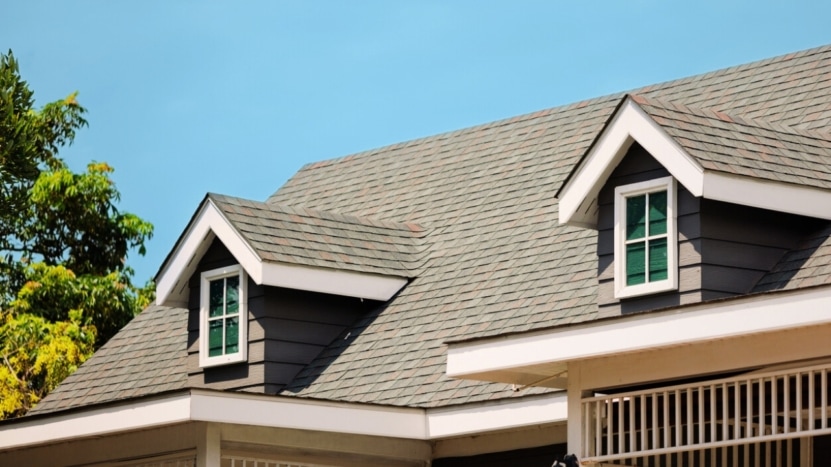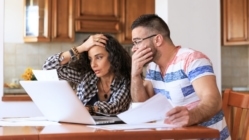Filing for bankruptcy is a significant decision that can have lasting effects on your financial profile, but does it mean losing your home? Getting a mortgage after bankruptcy isn’t always straightforward and depends heavily on the type of bankruptcy you file and your specific circumstances.
What Happens to Your Mortgage When You Declare Bankruptcy?
Declaring bankruptcy has significant implications for your current mortgage and future ability to borrow. The impact varies depending on whether you file under Chapter 7 or Chapter 13 bankruptcy. Chapter 7 bankruptcy may lead to asset liquidation to settle debts, which can include your home if it’s classified as non-exempt.
The key here is the homestead exemption, which protects a certain amount of home equity from creditors; this amount varies significantly between states. If your home’s equity is greater than the allowed exemption, the trustee assigned to your case might sell the home to pay off creditors.
For example, if your state’s homestead exemption is $100,000 – and you only have $50,000 of equity in your home, the bankruptcy trustee cannot sell your home to pay off creditors. If, however, you have $150,000 of equity in your home, the trustee could sell your home and then use $50,000 of the net proceeds to pay off creditors while paying you $100,000 (the exemption amount).
In contrast, Chapter 13 bankruptcy allows you to keep your assets, including your home, by entering into a court-approved repayment plan. This plan consolidates your debts and sets a monthly payment amount that fits your budget, typically lasting three to five years. You must continue to make regular mortgage payments directly to your mortgage lender outside of the bankruptcy payment plan, and any arrearage (payments missed and accumulated prior to your bankruptcy) will be included in the plan to allow you to catch up over time.
Will I Lose My House if I File for Chapter 13?
Chapter 13 bankruptcy is specifically designed to help debtors retain their property while reorganizing their financial obligations. When you file for Chapter 13, you propose a repayment plan to the court detailing how you plan to pay off current debts, while staying current with your mortgage.
By law, filing for Chapter 13 triggers an automatic stay that temporarily prevents creditors from collecting payments, foreclosing on your home, or repossessing property. This stay allows you to catch up on missed mortgage payments through the repayment plan—a key benefit not available in Chapter 7 bankruptcy. Success in Chapter 13, therefore, hinges on your ability to make consistent payments as stipulated by the plan, protecting your home from foreclosure as long as you comply.
If I File Bankruptcy, What Happens to My House Under Chapter 7?
In a Chapter 7 bankruptcy, whether you can keep your home depends on the equity you have in the property and your state’s homestead exemption. If the equity in your home is less than the exemption limit, you can likely keep your house. However, if the equity exceeds the exemption, the bankruptcy trustee may sell your house to repay creditors. But, as mentioned above, you will get to keep the proceeds from the sale equal to the amount of your state’s homestead exemption.
The exact rules can vary; for instance, some states have a very generous homestead exemption that effectively protects most homeowners, while others have much lower limits. Additionally, if you are current on your mortgage payments and can continue to make them, you may be able to reaffirm your debt with the lender, which removes that debt from the bankruptcy process and allows you to keep the home under the original loan terms.
Can You Improve Your Chances of Keeping Your Home If You File for Bankruptcy?
Improving your chances of keeping your home after filing for bankruptcy involves several proactive strategies. First, maintaining up-to-date payments on your mortgage is crucial. This demonstrates to the court and your lender that you are committed to keeping your home. Second, thoroughly understanding and possibly utilizing your state’s homestead exemption can protect a portion of your home’s equity from creditors.
Third, reaffirming your mortgage—officially agreeing to continue paying your mortgage despite the bankruptcy—can also help. This agreement must be approved by the court and ensures that your mortgage is not included in the bankruptcy discharge. Each of these steps requires careful consideration and is best navigated with the advice of a competent bankruptcy attorney who can guide you, based on your individual financial situation and the local legal environment.
How to Declare Bankruptcy and Keep Your House
When you’re considering bankruptcy and want to retain your home, it’s vital to understand the protective measures available to you, namely, the bankruptcy exemptions. These exemptions allow you to keep certain assets, including your house, under specific conditions. To declare bankruptcy and maximize the chance of keeping your home:
- Choose the Right Type of Bankruptcy: Decide between Chapter 7 and Chapter 13. Chapter 13 is often more conducive to keeping your home, as it restructures your debts into a manageable payment plan without liquidating your assets.
- Understand Your State’s Homestead Exemption: Homestead exemptions vary by state and protect a certain amount of equity in your primary residence. In some states, the exemption may fully cover the equity in your home, allowing you to keep it. It’s crucial to review your state’s specific laws or consult with a bankruptcy attorney to understand how these exemptions apply to you.
- Consider Reaffirming Your Mortgage: In Chapter 7 bankruptcy, you can reaffirm your mortgage, which means you agree to keep making payments and exclude the mortgage from the bankruptcy discharge. This legally binding agreement, which must be approved by the court, indicates your commitment to maintaining ownership of the home.
- Stay Current on Your Mortgage Payments: If possible, continue making timely mortgage payments during and after the bankruptcy process. This shows your lender and the court that you are financially responsible and capable of managing this debt, which can influence decisions in your favor.
- Explore a Loan Modification: If you’re struggling with mortgage payments, discuss modifying your loan terms with your lender before filing for bankruptcy. A modified loan could reduce your monthly payments and make it easier to manage financially.
How Soon After Filing Chapter 7 Can I Get a Mortgage to Buy A House?
Lenders focus on your bankruptcy discharge date and not on your filing date. And you will typically need to wait for a specific period of time after your discharge before becoming eligible for a home loan again. This period of time is known as the “waiting” or “seasoning” period. For FHA and VA loans, this period is generally two years from the date of discharge, during which you need to rebuild your credit if you want to qualify for a mortgage.
Conventional mortgages backed by Fannie Mae and Freddie Mac usually require a longer wait of four years. However, these periods can vary depending on the circumstances and specifics of your bankruptcy, and some lenders may have more stringent requirements or offer exceptions based on additional factors such as a larger down payment or improved credit score. Jumbo mortgages that exceed the “conforming loan limits” in your area often have even longer waiting periods.
Can I Buy A House Immediately After My Bankruptcy Discharge?
If you pay cash, you can of course buy a home any time you would like. But it is unlikely that anyone will have enough cash after a bankruptcy.
In addition, there are loans available with no waiting periods that are exceptions to the loans discussed above. The loans are known as “hard money loans” (also known as “private money”) and “non-QM” loans. These loans, however, require substantial down payments of 35% to 40%, and they come with much higher rates and fees.
Buying a House After Bankruptcy
Purchasing a home post-bankruptcy requires patience and a strategic approach to credit rebuilding. The impact of bankruptcy on your credit can be significant, but with careful planning, you can position yourself as a viable candidate for a mortgage in the future:
- Rebuild Your Credit: Start with secured credit cards and small, manageable loans. These financial tools are designed for individuals rebuilding their credit. The key is to establish at least three active accounts, and to ensure that all payments are made on time and in full, as payment history is a significant component of your credit score.
- Monitor Your Credit Report: Regularly check your credit report for inaccuracies that could drag your score down further. You’re entitled to a free report from each of the three major credit bureaus once per year via AnnualCreditReport.com. Address any discrepancies promptly.
- Save for a Down Payment: Post-bankruptcy, having a larger down payment can be a strong compensatory factor when applying for a mortgage. It reduces the lender’s risk and demonstrates your financial stability and commitment to maintaining the mortgage.
- Wait the Appropriate Time: Different types of mortgages have different waiting periods after bankruptcy. For FHA and VA loans, the waiting period is typically two years from the date of bankruptcy discharge. Conventional loans generally require a four-year wait, while non-conforming loans might have shorter or different requirements. Hard money loans have no waiting periods, but they require large down payments of 35% to 40%.
- Get Pre-Approved: Once you’ve rebuilt your credit and the waiting period has elapsed, getting pre-approved by a mortgage lender can help gauge your readiness to buy a home. It also strengthens your position as a buyer when you start looking at properties.
- Consult with a Mortgage Specialist: Consider talking to a mortgage specialist who understands the nuances of post-bankruptcy mortgage applications. They can provide tailored advice and help you navigate the complex lending landscape to find the best mortgage product for your needs.
By following these steps, you can improve your financial standing and increase your chances of buying a home after bankruptcy. Remember, while bankruptcy can provide a fresh start, it requires careful financial management and planning to leverage its full benefits, especially when it comes to homeownership.
Frequently Asked Questions
How long after bankruptcy can I get a mortgage?
After a bankruptcy discharge, you can secure a mortgage once you meet the waiting period required by lenders, which varies based on the type of loan and your financial recovery. The waiting periods for affordable mortgages typically vary from two to four years.
Do you lose your house in bankruptcy?
Not necessarily. Whether you keep your home depends on the type of bankruptcy filed, your home’s equity, and your state’s homestead exemption amount.
Can bankruptcy help me keep my house if I’m behind on payments?
Yes, particularly under Chapter 13, which allows you to include accumulated past-due payments (arrearages) in your repayment plan while maintaining current mortgage obligations.
What happens to my house if I file bankruptcy?
If you file Chapter 13, you can likely keep your home by adhering to the repayment plan. In Chapter 7, you may keep your home if it qualifies as exempt and you are still able to make payments to your mortgage lender. However, you may have to relinquish your home if the amount of equity exceeds your state’s homestead exemption amount.
Your Next Steps
Understanding the specifics of your bankruptcy type and staying informed about your legal options are crucial steps in maintaining or regaining your financial stability. Whether it’s through Chapter 7 or Chapter 13, planning effectively and consulting with professionals can help you make informed decisions that align with your long-term financial goals.
At JVM Lending, we consider ourselves experts when it comes to helping borrowers with bankruptcies on their records; we have helped hundreds of borrowers who are in Chapter 13 bankruptcy or who have recently exited all types of bankruptcies and are back on the road to financial stability.
If you’re ready to explore your mortgage options or simply want more information, contact JVM Lending at (855) 855-4491 or email [email protected].
























